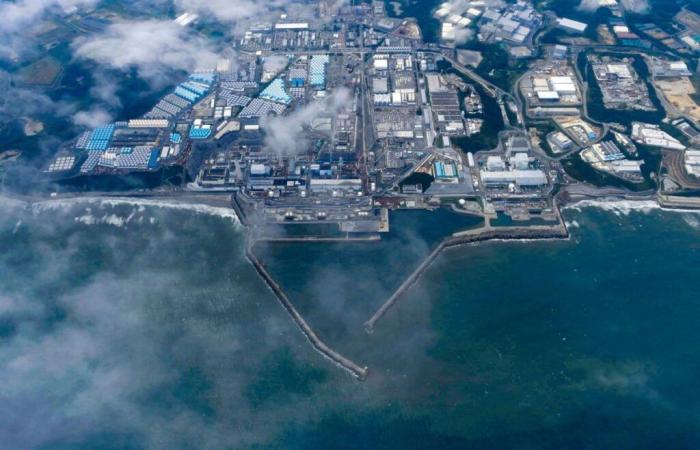Yasushi Kaifu has never been to China, and the 15-year-old Tokyo resident does not plan on visiting any time soon.
Few of Kaifu’s high school friends have ever travelled to China either, and as reports of tensions in the East China Sea and the Taiwan Strait mount, so too do their negative views and unease about Japan’s big neighbour.
“Because I live in Japan, I would be worried if there was a big war once a conflict broke out in the Taiwan Strait,” he said.
Do you have questions about the biggest topics and trends from around the world? Get the answers with SCMP Knowledge, our new platform of curated content with explainers, FAQs, analyses and infographics brought to you by our award-winning team.
Keitoku Ikegami, 24, a graduate student at International Christian University in Tokyo, has been to China, but said visiting now would not be an easy decision.
“As a Japanese person, considering political tensions between the two countries, I will be quite hesitant on whether I should really go to China,” he said.
The crippled Fukushima nuclear power plant in northeastern Japan. Photo: Kyodo alt=The crippled Fukushima nuclear power plant in northeastern Japan. Photo: Kyodo>
When he was 10, Ikegami went on a family trip to the southwestern Chinese province of Sichuan. His most recent visit to the country was last year, when bilateral tensions spiked again after China imposed a ban on all imports of Japanese seafood following Tokyo’s controversial discharge of water from its damaged Fukushima nuclear plant.
Ties had already been strained since 2020, first amid Japanese concerns over Beijing’s transparency regarding the extent of the Covid-19 pandemic and then its introduction of a national security law in Hong Kong, where Japanese businesses have a significant presence.
“My impression of China is that the food is very delicious and roads are broad, but the society is under tighter control than I expected, and there are so many surveillance cameras on the streets and in the subway stations,” Ikegami said.
He added that he would prefer travelling to neighbouring South Korea, which shared similar political systems and democratic values.
While Beijing and Tokyo have been at odds on many issues, leaders and politicians from either side – including Chinese President Xi Jinping and outgoing Japanese Prime Minister Fumio Kishida – have pledged to build strong bonds between their young people.
Yang Wanming, president of the semi-official Chinese People’s Association for Friendship with Foreign Countries, told People’s Daily in a recent interview that the organisation was planning to invite 1,500 Japanese youths to China.
Story continues
“The goodwill of the youth of the two countries towards each other is an important base of public opinion and the improvement of public opinion is fundamental work for the development of Sino-Japanese relations,” Yang was quoted as saying by the Communist Party mouthpiece.
“We will always attach great importance to the work of youth exchanges, and endeavour to nurture the power of knowledge and friendship with China for the new era.”
But the political chill, coupled with Japan’s increasing alignment with the United States, record low public opinion of China, and Beijing’s controversial anti-espionage law will hamper efforts to rebuild youth ties, according to observers.
Relations between China and Japan, the world’s second and third largest economies, respectively, are contentious and complicated.
Once a victim of brutal Japanese aggression from the 1930s to the end of World War II, China established diplomatic ties with Japan in 1972. Six years later, both countries reaffirmed they would “settle all disputes by peaceful means” in a peace treaty following a historic visit by late Chinese paramount leader Deng Xiaoping.
Territorial disputes in regions like the East China Sea have cast a shadow over China’s relationships with its neighbours. Photo: Reuters/Kyodo alt=Territorial disputes in regions like the East China Sea have cast a shadow over China’s relationships with its neighbours. Photo: Reuters/Kyodo>
Japanese were among the first foreign investors to come to China, and more than 31,000 Japanese companies now operate in the country. The two countries are also each other’s major export destinations.
Still, bitterness runs deep – from wartime history to territorial disputes in the East China Sea, and frequent confrontations between coastguard ships and military jets.
China has yet to resume its 15-day visa waiver policy for Japanese travellers. The number of Japanese visiting China in the first 11 months of last year was just one-third of that during the same period in 2019, according to the Japanese Chamber of Commerce and Industry in China.
“This is very worrying, as the exchange of young people has been dealt a blow because of political tensions in recent years and Covid-19 pandemic restrictions,” said a Chinese expert with a government think tank who declined to be named.
“Cultivating bonds between young people is like planting trees for your heirs, and it will have an impact on generations to come,” the expert said.
“I think leaders of the two countries need to take the initiative, because, like it or not, you can either forge ahead or fall behind when it comes to China-Japan relations.”
Youth exchanges have long been seen as a barometer of the health of ties between China and Japan.
The first group of Japanese students arrived in China soon after the two countries signed an agreement on exchanges in 1979. According to Chinese state media, some 480 Japanese students studied in Chinese universities between 1979 and 1982, while 960 students from China, sponsored by scholarships and loans from the Japanese government, enrolled in Japanese universities.
The peak came in the early 1980s, when Hu Yaobang, then general secretary of the party, visited Tokyo and extended an invitation to 3,000 Japanese young people to visit China.
In September 1984, a total of 12 flights carried 3,000 Japanese youths to China, according to China Youth Daily, and Hu Jintao, then head of the Communist Youth League of China, met them at the airport in Shanghai.
In 1985, Hu, who became party general secretary in 2002 and president of China the following year, led a delegation of 100 Chinese youths on a reciprocal trip to Japan.
“At that time, political ties were warm and it was largely the Chinese top leaders that spearheaded the exchanges between the young people,” the Chinese expert said. “And many of the young people at that time later became politicians and businessmen and helped improve ties with China.”
Even when political ties were strained and general public perception of China was negative, it appeared that Japanese youth held the most positive views of China.
In the most recent poll, conducted by the Japanese government last September and October, a record low of 12.7 per cent of the Japanese public said they considered China to be “friendly”, a dramatic drop from a peak of 78.6 per cent in 1980.
But the same poll last year showed about 20 per cent of people aged between 18 and 39 felt China was “friendly” – much higher than the percentages for those over 40.
Shin Kawashima, a professor at the University of Tokyo who specialises in modern Chinese diplomatic history, said improving youth exchanges was more important than ever.
“The negative public sentiment is a major challenge and cannot be overcome overnight, so seeking to strengthen exchanges between young people is becoming more meaningful now because they have better views of each other compared with other age groups,” Kawashima said.
Measures need to be taken before young Japanese lose interest in China, observers say, but the task will not be easy.
In Japan, where the population is ageing faster than in almost any other country, it will be a growing challenge to promote interest for exchanges among the younger generations.
“In the 1980s, young Japanese were invited to eat delicious Chinese food and watch performances in the Great Hall of the People [in Beijing] under a typical ‘friendship’ atmosphere, but do you think young people nowadays would like that?” Kawashima said.
Meanwhile, China’s controversial anti-espionage law and the detention of Japanese businesspeople and academics have sent chills across Japan, including scholars who used to be active in taking Japanese students to China for study programmes.
“Before that, many Japanese professors worked very hard to promote youth exchanges, however now it is not just the young students but also scholars whose interest in coming to China is waning,” the Chinese expert said.
Kawashima agreed that there were grave security concerns.
“Japanese people do not really know where the red line is, so many of them just give up going to China, and this also brings a negative impact on people-to-people exchanges.”
A first step would be to encourage young Japanese to see China for themselves to shift negative perceptions of China, according to Kawashima.
Kaifu, the 15-year-old from Tokyo, said he and his friends were fascinated with mahjong video games, which were inspired by the 19th century Chinese tile-based game, and someday he would like to experience “the differences in daily life between Chinese and Japanese”.
When he was 17, Takumi Inoue, now a 22-year-old undergraduate at Waseda University in Tokyo, decided that he wanted to go to China.
At the time, China’s alleged suppression of ethnic minorities in its western Xinjiang region had drawn international criticism and media attention, but this had also raised Inoue’s interest in China’s ethnic policy.
“Japan also has a history of suppression of the Ryukyuan people in Okinawa and the Ainu people in northern Japan,” he said.
In 2022, when China was still under a strict zero-Covid policy, Inoue flew to Beijing, where he endured a month-long quarantine before joining Peking University’s double-degree programme.
“I think it’s easy to attack China’s authoritarian system, and right-wing politicians in Japan have often criticised the zero-Covid policy, but I believe that unless I really experience it, I cannot just criticise it.”
Spending time in China did give him a new perspective on the country, he said.
“I used to believe that Chinese people hate us, and in fact, while I was called riben guizi [Japanese devil] twice in China, many people were very friendly after knowing I was Japanese,” he said.
Shotaro Abe, a 20-year-0ld from Kamakura, the political centre of medieval Japan, said he held “very negative views on the authoritarian government in China, especially after the Tiananmen crackdown and its policy in Xinjiang”.
But Abe, whose dream is to become the mayor of his hometown, recently applied for a two-week exchange programme to China, hoping to “really experience China because honestly I don’t really know the country”.
“I also want to talk to my peers in China, about everything from politics to music, for example, why China has so many young and famous pianists like Lang Lang and Yuja Wang.”
This article originally appeared in the South China Morning Post (SCMP), the most authoritative voice reporting on China and Asia for more than a century. For more SCMP stories, please explore the SCMP app or visit the SCMP’s Facebook and Twitter pages. Copyright © 2024 South China Morning Post Publishers Ltd. All rights reserved.
Copyright (c) 2024. South China Morning Post Publishers Ltd. All rights reserved.






